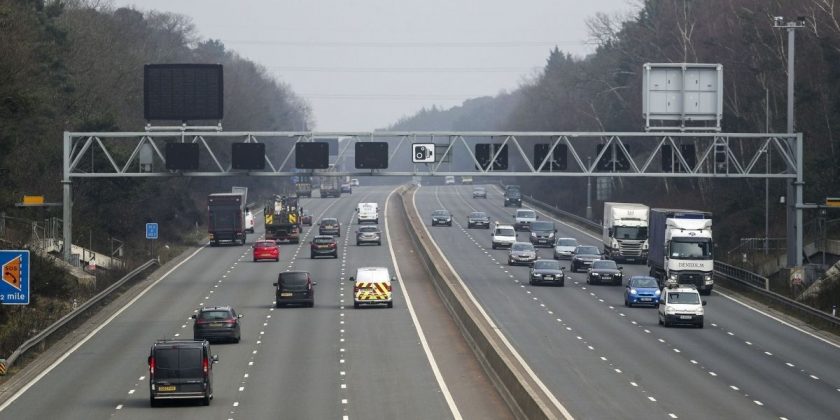Smart motorways: AA President reacts to suspension of rollout
We use your sign-up to provide content in ways you’ve consented to and to improve our understanding of you. This may include adverts from us and 3rd parties based on our understanding. You can unsubscribe at any time. More info
Smart motorways without a hard shoulder are three times more lethal to break down on than those that retain the safety lane, a report found yesterday. But despite this, the National Highways chief maintained that they are the safest roads in the country.
The chance of a crash resulting in minor injuries was nearly two-thirds higher on the roads, which have no hard shoulders according to the National Highways analysis.
The report also stated that life-saving technology designed to alert traffic officers to vehicles marooned in live lanes is missing as many as 100 incidents a month.
While the stopped vehicle detection (SVD) technology is flagging around 1,000 incidents monthly, more than 10 percent are not being spotted, according to National Highways boss Nick Harris.
Eight people were killed on motorways without a hard shoulder present in 2020 alone.

The data showed that when incidents involving moving vehicles are included, all-lane running (ALR) smart motorways are safer than conventional ones.
However, the analysis shows there are still more serious injuries or deaths on ALR roads than the two other types of smart motorway, which either retain the hard shoulder permanently or use it as a live lane intermittently.
Yesterday’s report found that, from 2016-2020, there were 0.06 serious injuries or deaths per billion vehicle miles travelled after motorists broke down on ‘controlled’ smart motorways, which permanently retain the hard shoulder.
But on ALR smart motorways, the figure was 0.19 – more than three times higher.
DON’T MISS
Parking nightmare as ‘every single car’ on street is ticketed [SHOCKING]
Driver who refused parking fine as it was in English wins court fight [INSIGHT]
Electric car popularity may see shipping fires spike – ‘catastrophic’ [WARNING]
For conventional motorways the figure was 0.09, meaning ALR smart motorways are more than twice as lethal as these roads, reported the Mail.
Mr Harris said: “It is now two years since the Transport Secretary first published the smart motorway stocktake, and today’s report shows that we are making good progress delivering on these ambitious recommendations. But we are not complacent.
“The latest data shows that, overall, in terms of serious or fatal casualties, smart motorways are our safest roads.
“We will continue to build on work already undertaken and continue to put safety first to help ensure drivers have confidence in the motorway network.

In January, Transport Secretary Grant Shapps ordered that around 100 miles of smart motorway projects be paused until more safety data becomes available.
But another 100 miles of the schemes are going ahead. Vehicles often become marooned in live traffic on these roads because their hard shoulder is turned into an extra lane.
National Highways said it will add to the 330 additional signs already installed which inform drivers of the distance to the next emergency refuge area and that it is on track to complete the rollout of radar technology to improve detection of stopped vehicles in live lanes on more than 200 miles of smart motorways by the end of September.
Mr Harris added: “Our very clear ambition is to get ALR to the same level of performance on stopped lane incidents as conventional motorways.

“I don’t think SVD is a magic solution, but it is part of it… we want it to work even better.”
Edmund King, president of the AA, said: “The five-year average shows that when a vehicle is stopped in a live lane of any form of smart motorway, it is worse across all safety metrics when compared to a motorway with a permanent hard shoulder.
“Last month, more than eight out of ten drivers told us they would find breaking down on a smart motorway a stressful experience compared to just 57 percent who would be stressed breaking down on a motorway with a permanent hard shoulder.
“This clearly shows that most drivers are still not convinced that removing the hard shoulder is a smart move.”
Source: Read Full Article
